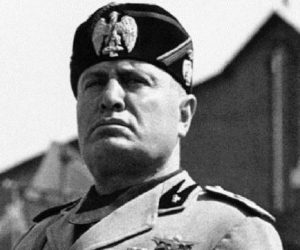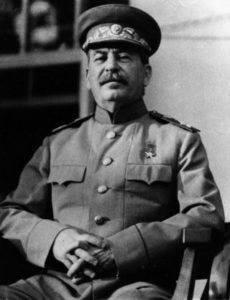If there’s one thing we know about totalitarian dictators, it’s that they get things done. Their goal oriented approach allows these men (yes, always men) to overcome their hardships and achieve the impossible (and undesirable). After careful research, we’ve compiled a list of some of their tips for success.
Fidel Castro- “Start where you are. Use what you have. Do what I say.”
Fidel Castro led one of the most significant socialist revolutions in Cuba, ousting foreign influences and changing the scope of international policy for decades. Castro believed society was a collective of individuals, and he believed every individual was capable of achieving anything, as long as it was what he wanted. Castro actually commissioned a series of motivational posters, the first of their kind, though they failed to achieve widespread acceptance. This was due to their often alarming juxtaposition of images and words. For example, a poster with the caption, “COURAGE is the ability to follow orders,” framed an image of a man canning crab. A similar poster decries “PERSISTENCE: You kinda have to,” and depicts a woman running away from geese.
Pol Pot- “Dress for the job you want, not the job mandated by the state.”
Pol Pot, as head of the Khmer Rouge, led Cambodia into one of the most catastrophic economic and industrial periods ever recorded. Countless numbers of Cambodians died during this failed attempt at a self sustaining agrarian economy. Nevertheless, this failed to hinder Pol Pot’s unwavering optimism. “People should always be looking ahead, always thinking of where they want to be next,” remarked Pot. “Most people don’t like their jobs. That’s OK, since you don’t have any choice anyway.”
Benito Mussolini- “Under me the trains always run on time.”
Many often forget that Mussolini himself coined this now iconic phrase. What even fewer people know is that it is in reference to eating a balanced diet in order to keep oneself regular. Italy has always been known for its fine cuisine, but the horrors of World War II led to rationing and other food shortages. As such, it became hard, even for Benito, to get enough fiber in his diet. This excerpt is often quoted out of context, and the full proper quote is “Sometimes my train come-a early, some-a-times it come-a late. Sometimes I have a water train. But now, under me the trains always run on time.” Rumor has it that Mussolini then brought his thumb, fore, and middle fingers together, kissed them and waved them in the air.
Ho Chi Minh- “Failure is just a success you haven’t had yet.”
Ho Chi Minh led the communist forces of North Vietnam during the Vietnam War, which is widely regarded as one of the biggest foreign policies blunders of the twentieth century, and did considerable damage to the reputation of the military in the eyes of mainstream America. Indeed, Secretary of State Robert McNamara must have been repeating these words to himself ad nauseum during a bloody and cyclical state of conflict which seemed devoid of any resolution. This quote originated during a phone call between Minh and Lyndon Baines Johnson. The topic at hand was Johnson’s perpetual lack of success in convincing his wife, Lady Bird Johnson, into having a threesome. After his lengthy lamentations, Minh made the above remark, and many historians speculate that this advice ultimately dissuaded LBJ from seeking a second term. .
Adolf Hitler- “Always wipe front to back.”
Four entire chapters of Mein Kampf are dedicated to Adolf being unaware of how to wipe properly for the first 16 years of his life. He spent much of his teen years in isolation because of complications regarding his hygiene. When someone finally informed him of his error, he adopted the phrase as a sort of mantra, meaning that one’s world view could change at a moment’s notice, and that one had to be adaptable.
Josef Stalin- “Show up on time or you’ll disappear.”
Though Mussolini is often credited as the one who, among other things, revitalized Italy’s public transit, it was Stalin who made punctuality a decree in his administration. In Stalin’s eyes, if you were ever late, that itself was enough for you to never be heard from again. “I have never been late to a meeting,” Stalin would declare in many of his mandatory speeches. “I arrive just when I want to.” His advisers were always forced to laugh at this statement, despite its lack of punchline.













